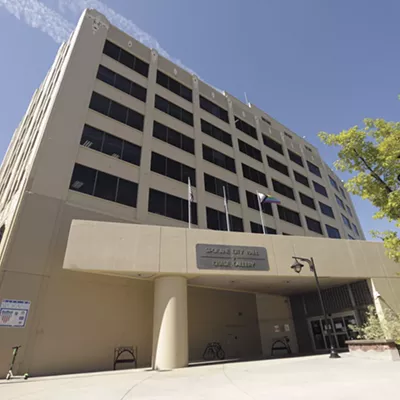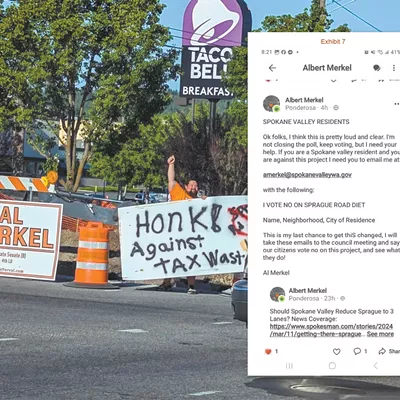As the Inlander reported last week, the city has experienced a flood of exits this year — well, so has the Spokane City Council. "I would say most of them got jobs that paid more and they were more interested in doing," says Council President Breean Beggs. For example, the council's attorney, Brian McClatchey — husband of former state Senate Majority Leader Lisa Brown — left in July to practice tribal law in California. The council's housing and homelessness initiatives manager, Melissa Morrison, left for a job at Better Health Together in January, while her replacement, Meagan Vincello, went to the Empire Health Foundation in August. That same month, the council's transportation policy analyst, Shauna Harshman, went to the Spokane Low-Income Housing Consortium. This year, Scotty Nicol went from his job in the mayor's office to becoming City Council member Karen Stratton's legislative aide, resigning to run — unsuccessfully — for the state Legislature. "No one is immune to the challenges of staffing and employment right now," says the mayor's spokesman, Brian Coddington. But Council member Michael Cathcart offers a more bleak assessment of the top floor of City Hall, which houses the mayor's office and the City Council. "It is a very toxic work environment," he says. (DANIEL WALTERS)
GIMME SHELTER
This week, City Council President Breean Beggs introduced a resolution prioritizing funding for existing homeless shelters in Spokane before spending money on new ones. The resolution follows last week's unexpected news that Hope House, a downtown women's homeless shelter, would close in January without additional city funding. Beggs says that the resolution isn't just about Hope House — it's intended to protect all existing shelters. "It's basically saying, 'Don't fund the Trent shelter by taking money from existing shelters,'" Beggs says. He's referring to the recently opened Trent Resource and Assistance Center, which the city hopes will spearhead its efforts to close the Camp Hope homeless encampment. The city hopes to expand the Trent shelter to make room for the campers, but that comes with a price. Beggs worries that by focusing on the Trent shelter, the city will overlook shelters like Hope House that also need money. Beggs says the resolution will probably come to a vote next week, pending ongoing budget talks with the city administration. (NATE SANFORD)
SEE YA LATAH
It's one thing to declare a "housing emergency" to highlight Spokane's deep lack of housing as Mayor Nadine Woodward did in July. It's another to stand on your pro-housing principles when a loud chorus of neighbors is against development. After all, there were plenty of reasons neighbors gave for supporting the City Council's six-month emergency moratorium on some types of development in the Latah and Grandview-Thorpe neighborhoods on the city's western flank. Beyond just the general arguments against sprawl, the city had failed to build the necessary roads over decades to support the nearby U.S. 195 highway. The council had supported a "pause," to give time to develop a new fee structure to ensure future construction paid for the necessary infrastructure. But at a council meeting last week, Woodward announced she does not support the West Hills development moratorium, arguing that "it sets us back in adding housing units in our region," puts at risk grant funds to pay for transportation improvements and creates confusion in the development community. Nevertheless, she said, city staff was going to try to quickly prepare plans so "builders can break ground and walls can go up again" when the moratorium ends in March. (DANIEL WALTERS) ♦





















